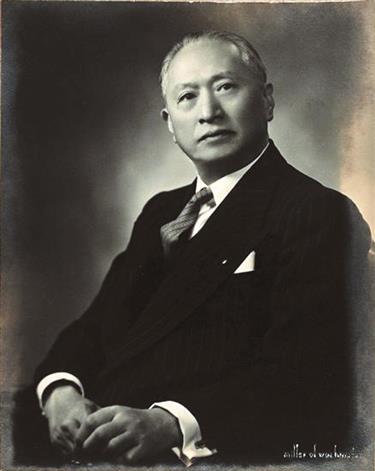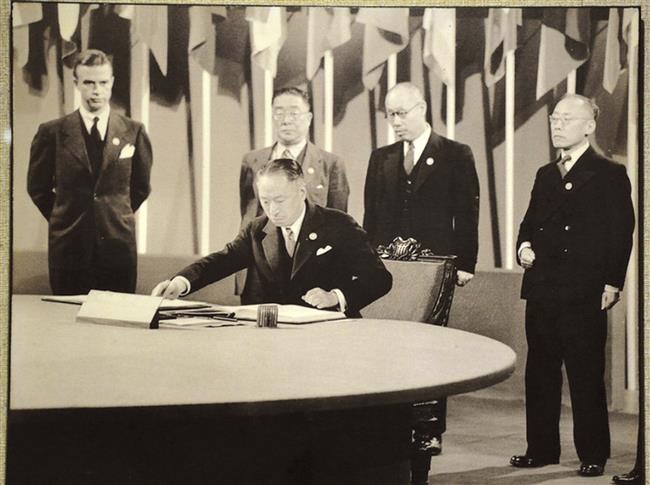Jiading a breeding ground for Chinese diplomats
In the mid-19th century, China faced unprecedented change. Out of sight for 3,000 years in its course of history, when the European powers forced their way into the Qing Dynasty (1644-1911), China was awakened to its dire need of diplomatic talent.
Guangfangyan Guan, a school for foreign languages was set up in Jiading and drew many young students to learn there. Meanwhile, many other adventuresome students, for the first time after China has been closed for so long, set their foot in the West to learn about their culture.
Many Jiading native students became famous diplomats, including Wu Zonglian, Liao Shigong, Li Jia’ao, Gu Wenjun and Wang Shoushan.
After the establishment of People’s Republic of China, a batch of diplomats including Wu Xueqian, Qian Qichen and Shen Changhuan faithfully spared no efforts in carrying out their duties.
Jiading diplomats all had a sense of patriotism. Liao Shouheng was a supporter of Hundreds Days’ Reform; Wu Zonglian at the request of Sun Yat-sen, raised money for building railroad tracks in China.
Wu Xueqian and Qian Qichen made contributions to the development of modern China, letting the world know the real China.
These Jiading diplomats loved their hometown so much that they would return to Jiading after they retired. Liao Shouheng went back to Jiading and opened a school to educate hometown’s Children.
Treaty refusal made him famous
Gu Weijun, also known as Wellington Koo, graduated from Columbia University and was one of China’s most brilliant diplomats.

Gu Weijun (1888-1985)
In the 1919 the world was about to be divided by the Western powers at the Paris Peace Conference.
China, a winning country in World War I, could send only two representatives to the conference under limits set by the Western powers. Gu was one of the two representatives.
When the German concessions were transferred to Japan, Gu, Out of rage and disbelief, refused to sign the treaty.
This came as quite a shock to the Western powers, and the act also made Gu famous.
In January 1927, he was appointed premier and foreign minister. Subsequently, he deposed Francis Aglen, the inspector-general of the Chinese Maritime Customs Service, for his refusal to impose surtax via China’s Customs for the government.
The public was taken aback by Gu’s bold act, for it freed China from the Western powers’ constant control on important posts in China’s Customs, breaking the habit of pleasing the Western powers.
In his late years, Gu never stopping missing his hometown, a feeling only got more intense over time. For everyone who paid him a visit in America, he would always ask them the same question, “Have you been to my hometown Jiading?”

Gu Weijun, the Chinese delegate, signed the Charters of the United Nations at the San Francisco Conference in 1945.
Studying French stood Liao in good stead
Liao Shigong (1877-1955) was first admitted to the Guanfangyan Guan to study French. Then he went to Paris to study at Institution of France in 1900 and graduated with a bachelor’s degree. After returning to China, Liao was appointed as superior of overseas students in Europe and stayed in Paris for a long period.
In 1918, at the end of World War I, Liao was promoted to the consul in Paris, Britain, and France and another 63 countries planned to launch the International League Organization to keep the world safe and peaceful.
In 1922, Liao attended the China Tariff Conference as the chief representative of China’s Customs, in defense of China’s interest, Liao made a lot of efforts, talked to many parties, finally bent the unjustified tariff treaty in China’s favor.

A fan from Liao Shigong's collection illustrated by Xu Beihong, the renowned painter. One side features an eagle on a Himalayan mountain, symbolizing the diligent spirit of Liao. The other side is a poem praising the eagle.
Raising money without harm
Wu Zonglian enrolled in Guangfangyanguan in 1876, and studied Russian and French in the school of Combined Learning. Later he entered the Ministry of Foreign Affairs due to his language expertise and his aptitude for foreign affairs.

Wu Zonglian (1856-1933)
In 1909, Wu was assigned as an imperial convoy at embassies in Western Europe, at the request of Sun Yat-sen, Wu set out to raise money for the three major railroad tracks from countries like the UK, France, Italy and Belgium. The fundraising wouldn’t have been possible if it wasn’t for Wu’s briskness and integrity. All the while he had followed Sun’s principles, Wu held his ground and didn’t play into his money lenders hands. Not only he raised enough money, but he also did so without harming China’s sovereignty.
Advice from Liao turned the tide
Liao Shouheng (1839-1903) was minister of Rites, Minister of foreign affairs and grand chancellor of China(the highest-ranking executive official in the imperial Chinese government). In 1884, he was appointed Secretary of Foreign Affairs.
That was an eventful year where Franch army almost captured Vietnam. Soon, the conflicts escalated, and China’s southeast border was at risk. Knowing this, Liao wrote to the Emperor many times to warn him that if Vietnam falls, then war was inevitable. The opportunity should be taken when France’s main army in Vietnam was not well prepared to send more enforcement. The Imperial court took heed of Liao’s advice, which turned out to be a deciding factor for China’s winning the war.
In his late years, Liao still managed to run a school for language and diplomacy to carry on the torch.
Ensuring Russia’s non-involvement stance
Li Jia’ao (1863-1926) became a translator at the Chinese embassy in Russia in 1887, the start of his career as a diplomat.
In 1893, the Sino-Japan war was about to break out. The Qing imperial court still didn’t know where Russia stood, which was crucial information for winning the war. The court knew Li Jia’ao had a lot of connections in Russia so this very important task was assigned to him. Owing to his excellent Russian skills, Li managed to get the intelligence in Vladivostok that ensured Russia’s non-involvement stance in the war.
















